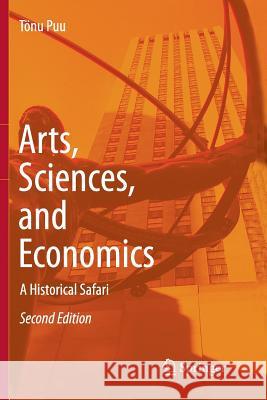Arts, Sciences, and Economics: A Historical Safari » książka
topmenu
Arts, Sciences, and Economics: A Historical Safari
ISBN-13: 9783662500965 / Angielski / Miękka / 2016 / 189 str.
Kategorie:
Kategorie BISAC:
Wydawca:
Springer
Język:
Angielski
ISBN-13:
9783662500965
Rok wydania:
2016
Wydanie:
Softcover Repri
Ilość stron:
189
Waga:
0.31 kg
Wymiary:
23.39 x 15.6 x 1.17
Oprawa:
Miękka
Wolumenów:
01
Dodatkowe informacje:
Wydanie ilustrowane











